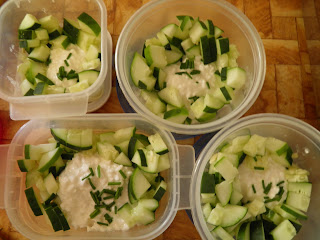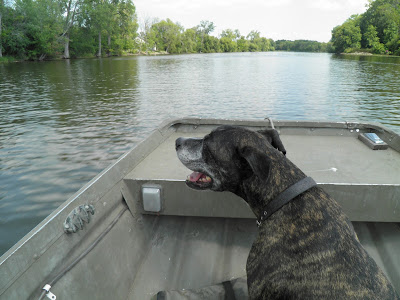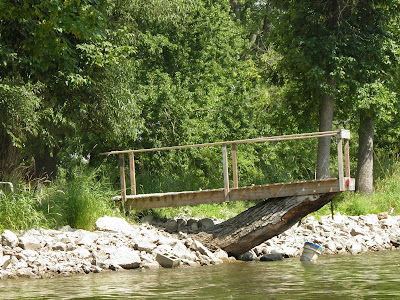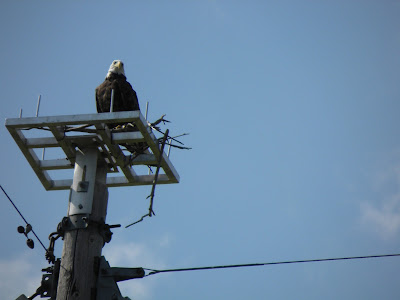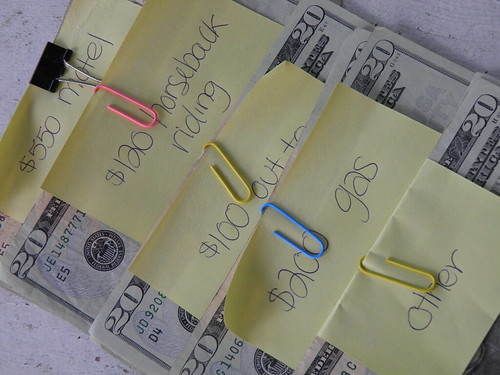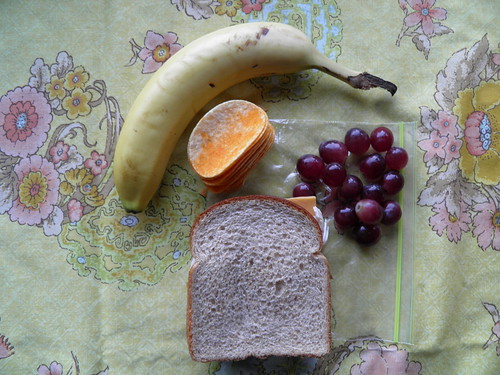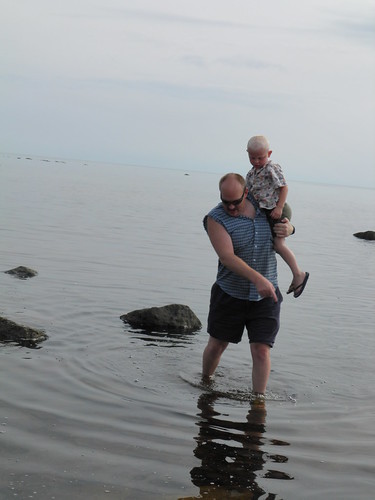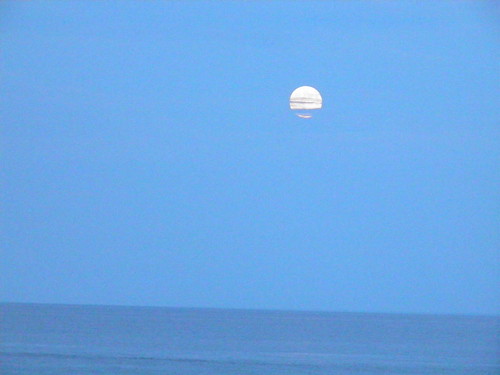I am the queen of travelling on a budget. Take our recent trips to
Mackinac Island,
Door County and
Chicago for examples. We were able to take these three exciting trips within a month of each other without robbing our regular monthly budget. I also happen to be a super resourceful person, so we get quite a lot more out of our trips than I suspect some others do. Let me clue you in to the tips and tricks I use to get every last drop out of our trips that we can:
1.
Travel Sunday through Thursday: On our recent Mackinac Island trip, we did just that and the rates were significantly lower during the work week. We've done this before with trips to Wisconsin Dells as well, and ended up paying pennies for a week full of memories. Weekends are huge in the world of tourism, so travelling during the week can work to your advantage. If you're taking a week off of work anyway, why not travel Sunday through Thursday? Hey, that even leaves you a full three-day weekend to take a vacation from your vacation.
2.
Travel during the off-season: similar to #1 above, travelling just outside of the purported "high-season" will save you significantly. We got dirt cheap rates for a motel in Wisconsin Dells when we traveled in mid-June. It was still hot enough to enjoy all the water parks and outdoor attractions, but too early to be considered part of the high season. We got to enjoy the sites for cheaper and with far fewer other people clamoring for rides. Check to see if there is an off-season for your desired destination and plan your trip around that.
3.
Stick with the envelope system: Prior to leaving for any of our trips, I always designate a certain amount of funds to fixed costs such as gas, motel, food and must-see sites. Then, I put away a little for "extras" like souvenirs, extra dinners out, parking costs and other things. We adhere strictly to this envelope system to keep our spending in check because it can be easy to get carried away with treats and unnecessary souvenirs. With
my envelope system, we don't end up with a bunch of extra junk in our luggage and really give thought to what we're throwing money at. I'd much rather sacrifice an extra beach towel for an off-road ATV ride any day. Experiences always trump "things." Your spending should reflect that.
4.
Sacrifice a nicer hotel for more experiences: Really, we're generally only in our hotel room to sleep. Therefore, we don't need anything extravagant. Yes, we want something decent, but it doesn't have to be much more than a clean bed, a hot shower and a microwave. That way, we can spare more expenses for memories and experiences. Those are much more important. You will save a significant amount of money if you can find a decent hotel with just the basics. With a little research, you can weed out the really awful places and find something just right. When we went to Chicago in June, our requirements were that we had parking, were within 15 miles of my
NASM workshop, were in a decent neighborhood and had a pool to use. Know what you absolutely need and cut out the rest. With research, we ended up finding a decent, clean Best Western for a really good price and were able to spend more on museums and other excursions. You may even be able to score a hotel that is a step up by using travel discount sites like
Priceline. This could be a bullet point of its own, but you should never pay full price for your hotel! Check out the prices on several travel sites before you make your final booking.
5.
Find package deals. On our recent Mackinac Island trip, I was able to save a significant amount of money by packaging what we knew we needed with our hotel booking. We bought our ferry tickets and butterfly museum tickets along with our hotel room on the
Chamber of Tourism website, saving us $7.50 per person. Hotels themselves often offer coupons and special deals, and some travel sites are equipped to do this for you too. If you know exactly what you'll need for the trip, go ahead and buy tickets at a reduced price ahead of time.
6.
Bring your own food. Eating out is definitely something we enjoy doing on vacation, but we try to limit it as much as we can because it can be really expensive when all added up. By bringing sandwiches, yogurt, granola bars, popcorn and other travel-friendly foods in a cooler, we always save a lot on food. We usually plan one or two special restaurant dinners out and enjoy the rest of our meals at picnics or in our room. Beach and boat picnics offer much more significant memories than another restaurant meal anyway. You will probably end up eating more healthy if you use this strategy too!
7.
Take advantage of amenities: Our last hotel had one of the best free continental breakfasts I've ever experienced. We were able to eliminate some of our food expenses due to this. We filled up in the morning and only had to eat light lunches. There was also an on-site gym, outdoor playground and indoor water park at our disposal. Some of our food and entertainment was built right into the hotel cost! Factor in these amenities to your trip planning to reduce some of your costs.
8.
Do your research: Find as many free and low-cost forms of entertainment that you can. Don't spare expenses for what you really want to do, but do be resourceful about things you can do and see without spending a mint. Check travel websites for what other people are saying and for what locals already know. You might find some hidden gems that others don't know about or ways to get around certain costs. We've found countless free festivals, concerts, historical sites, lighthouses, beaches, museums, state parks and much more that leave us with amazing memories and no travel debt! I mean, swimming in the Great Lakes and catching that colorful awe-inspiring sunset under the Mackinaw Bridge cost us nothing, but those memories will last a lifetime.
9.
Check your rewards and memberships: Our local
EAA passes got us into the Museum of Science and Industry in Chicago for free. In fact, there are hundreds of museums across the country that our passes will get us into for free, so we try to see if there are any nearby whenever we travel. Check with your credit cards, AAA membership, workplace and other places you belong to find discounts and cash in on those points. We also like to save our reward dollars from our credit card just for trips. My and Hubster's workplaces even offer discounted tickets on places like water and theme parks. It really pays to check out what's available to you through your various connections and memberships.
10.
Use unconventional income sources: A good portion of our trip expenses are brought to us by the cash we get from a friend who rents a room in our house. Explore new ways to bring in extra cash and then dedicate that portion entirely to trips. If you didn't miss that income before, you won't miss it now. I have also worked on some freelance writing projects, cashed in our credit card reward dollars, saved our tax returns and sold some unnecessary items from our home online or at rummage sales to sweep together travel funds. You could also squirrel away 1% of your normal income automatically to a dedicated savings account or earmark work bonuses for special travel occasions. Find a way to bring in extra cash, be diligent about saving, and you just might be able to go on your dream vacation--or at least head out of town for the weekend.
11.
Stay a little further down the road. Staying directly in the city you which to visit can sometimes be more pricey. For example, staying for a week on Mackinac Island would probably have cost us double what we paid to stay on the mainland. We were still able to enjoy all the pleasures of the island, but we were also even able to explore much more of the upper Michigan area this way. One day, we simply drove down the road until we hit a small town. We wouldn't have been able to do as much on the Island. Same thing with our Door County trip. Staying right in Fish Creek or Bailey's Harbor would have set us back more than our little cabin just a tad bit down the road. Staying in a tourist-driven city is notoriously more expensive than staying just a bit outside.
12.
Take shorter, closer trips: as you can tell by my family's travel experiences this year, we like to take vacation within a day's drive of our home. There are so many places that feel like a whole different world that take no more than a five hour's drive. Research places in your home state that you've never been before and I'm sure you'll find enough worthwhile trips to last you decades. As a bonus, you won't have the gas or flight costs associated with further travel. Likewise, we enjoy taking shorter, more frequent trips. If you're staying close to home, your travel time doesn't eat up your actual vacation time as much. Also, when you break the year up into smaller slices like that, you have so much more to look forward to, it's easier to budget for trips, and hey, your work productivity might even surge.

I truly hope these 12 tips give you some useful tips for travelling on a budget. It really is possible to visit new places, even with lighter income streams. Please, don't let that vacation time roll over into next year's paycheck. Take some time today to plan your next trip. You'll be glad you did. What are you top ways to save?












